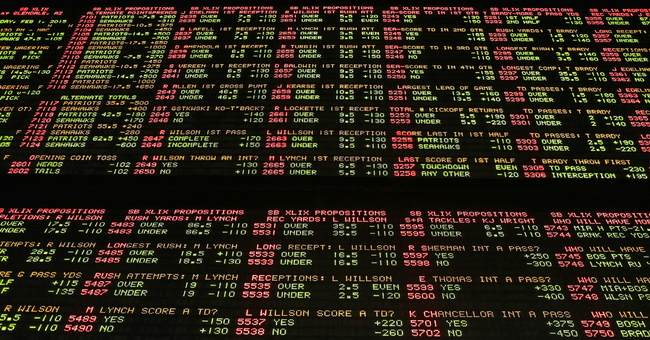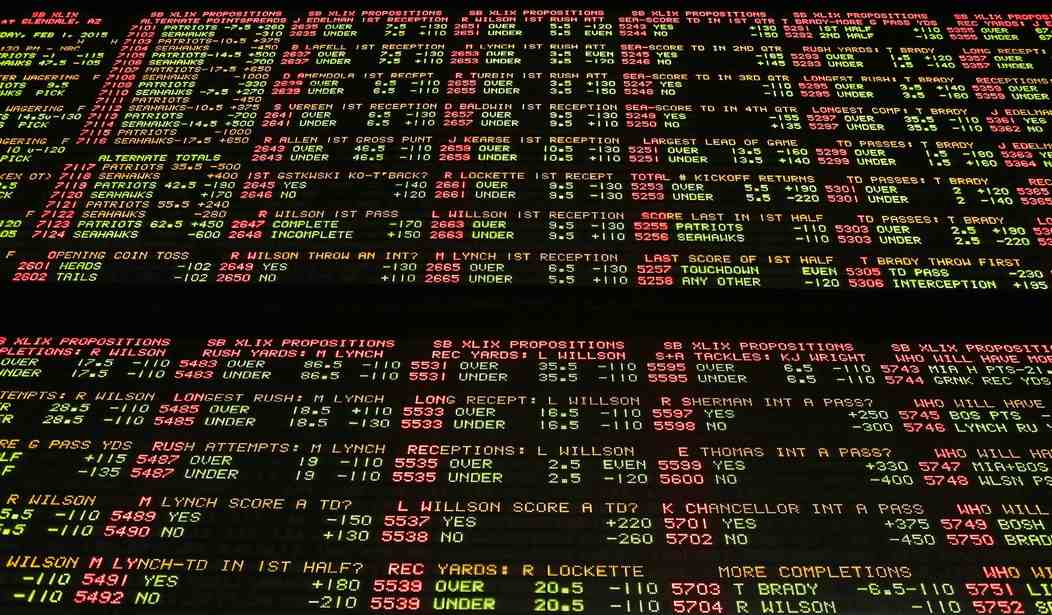
I noted with some humor today that Chris Cillizza, a dependable DNC/Obama/Biden house organ if ever there was one, went out in search of an explanation for why betting markets have turned strongly in favor of a likely Trump win in November? “How can that be when all the polls and news organizations show Biden cruising to a big win over Bad Orange Man?”
I chuckled because I suspect Chris might be a secret RedState reader since I have noted quite prominently on this site a huge shift in betting with foreign and off-shore bookmakers in favor of a Trump re-election, which seemed to begin almost immediately after Biden named Comma-lie-alot Harris as his VP running mate.
Overseas betting markets have Trump rapidly gaining on Biden in race for re-election.
Betting markets now have race between Trump and Biden a “dead-heat.”
Not being satisfied that I — with 40+ years of wagering experience in my corner (it was one reason I was hired as an AUSA, but that’s a different story) — had told him all he needed to understand, Chris asked an “expert” professional gambler about what the betting market means when trying to make sense of it in light of all the fancy polling being done. Here are some of the answers he was given:
Cillizza: There’s very little actual evidence — polling, money etc. — that suggests Trump is much more likely to beat Biden than he was a month ago. But the odds are basically 50-50. What gives?
Peabody: Simply put, there has been an influx of money bet on Trump, which has driven his price up. Does that reflect a true fundamental change in the race, or is it an inefficient market move? I am always inclined to side with liquid betting markets over polls — they have a track record of outperforming polls and pundits…. While polls can be a good barometer, they rely on a number of assumptions, including the composition of the electorate…. I’m no political expert, but the perception, accurate or not, seems to be that Republicans have finally found a strong message: law and order. It feels like the election is being fought on different turf than it was a month ago, and while continuing protests may galvanize progressives, they may hurt Biden’s chances with moderates….
Cillizza: Finish this sentence: “The best way to use betting markets to understand where a game or a presidential race is headed is _______.” Now, explain.Peabody: “The best way to use betting markets to understand where a game or presidential race is headed is as the best indicator we have available of the probability. “Just like stock prices take all available information — including fundamentals such as earnings reports — political betting markets take data, such as polls and fundraising numbers, into account. Markets aren’t always efficient, but liquid markets do a better job of synthesizing available public and nonpublic information than polls alone…. It’s possible that markets are moving on some information that’s not yet public; we have no way of knowing for sure. I should stress that betting market predictions aren’t always accurate, but historically, they have been better predictors than polls.
Cillizza: What makes a market move? Outside events? Momentum?Peabody: The short answer is money, and usually, though not necessarily, smart money. Sportsbooks want to make money and minimize risk, which they can do by setting odds that draw betting volume proportional to the odds offered. This is referred to as balanced action, or two-way action. If the betting public is wagering a lot more money on one team (or politician) than another at a traditional sportsbook, the book can adjust the odds they offer (for future bets) in hopes of receiving more balanced action. Why? By setting a “price” that equalizes supply and demand, they can use the money from losing wagers to pay off the winning wagers, and collect a risk-free profit.
Have the bookies adjusted the odds in response to the action?
From what I have been able to find, the original “money line” set by bookmakers was on July 20, 2020. It was as follows
July 20
Biden -162
Trump +150
Remember that the “-” indicates the “favorite”, and the number means a bettor would need to wager $162 in order to win $100 on a bet placed on Biden to win.
The “+” indicates the “underdog”, and the number means a bettor would win $150 for every $100 wagered on Trump to win.
The following week, on July 28, the “money line” had been moved by the bookies based on the action they had received. It was as follows:
July 28
Biden -177
Trump +160
That means that in those first 8 days the bookies took more action on Biden than they did on Trump, and they adjusted the line in order to draw more Trump money by increasing the amount needed to wager in Biden in order to win $100 — by $15 — and increasing the amount a bettor would win on a $100 bet on Trump by $10 extra dollars.
But it has been downhill for Biden in the betting market ever since — a steady and consistent decline over the past 5 weeks, which accelerated after the GOP convention.
The most weekly number was posted yesterday:
Sept. 4
Biden -110
Trump -110
That means the market is roughly “in balance”. To stay “in balance” the bookies would need to continue getting equal amounts of money wagered on both candidates at this current price. If they continue to get more money wagered on Trump in the days and weeks ahead, then they will need to adjust the line in order to attract money wagered on Biden. That movement in the line would make Biden an underdog in the race.
But the real story is not so much what the line reflects today, but the massive movement in the line in favor of a Trump re-election in November. And this takes me back to the Cilizza piece for one final thought from the expert he consulted:
Peabody: Let’s say there are two classes of bettors: “Sharp” bettors who will bet large amounts of money if they find a profitable opportunity, and “square,” recreational bettors… are long-term losers (in terms of money made and lost)…. If a sportsbook is getting unbalanced action, but all that money is being bet by “squares”, it’s less inclined to adjust its odds….[T]he most sophisticated offshore sportsbooks …. are very good at profiling bettors — identifying the “sharp” bettors from the “squares” — and will adjust their odds in response to large wagers from “sharps”…. That was a very long-winded way of saying that large bets from sophisticated, successful bettors generally make markets move.














Join the conversation as a VIP Member